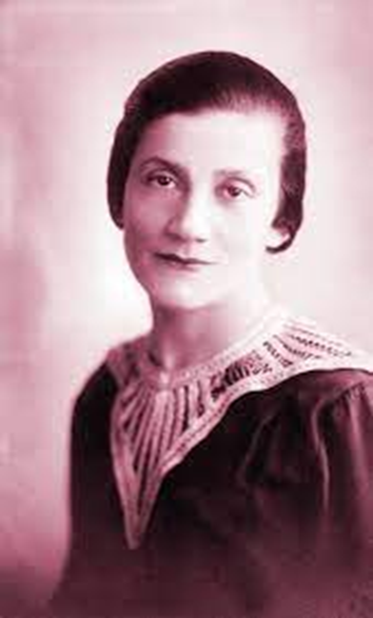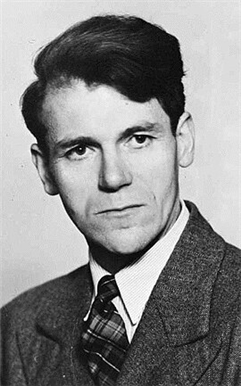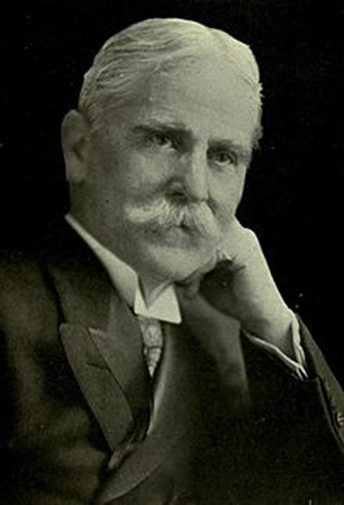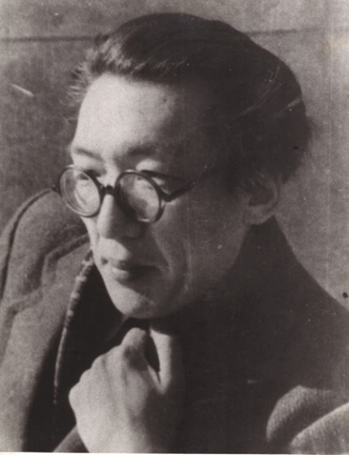Desanka Maksimović, Serbian Poet
- 고은별

- 2024년 2월 2일
- 8분 분량
Desanka Maksimović (Serbian Cyrillic: Десанка Максимовић;16 May 1898 – 11 February 1993)
Joy
I no longer watch the hands turn,
nor track the sun’s hot path;
Day is here when his eyes return,
and night again when they depart.
Joy does not mean laughter,
and his yearning outweighing mine;
Joy to me is when we’re silent,
and our hearts in tandem chime.
I do not rue that life’s rivers
will carry off my own life’s drop;
Now blast youth and all to smither’s;
Enthralled beside me he has stopped.
Desanka Maksimović (1898-1993) was born in the village of Rabrovica, near Valjevo. She was a poet, professor of literature and a member of the Serbian Academy of Sciences and Arts. She is the greatest Serbian writer of her time and author of numerous collections of poems, several novels and storybooks for children. She made a great contribution to developing the expressivity of the Serbian poetic language, enriching it with new subtle images, and managing to explore, like no one else, the inner world of the female soul.
Maksimović spent much of her childhood in Brankovina
In 1998, UNESCO recognized Maksimovich as a “Personality of Culture of the 20th Century”. She was born into the family of a rural teacher and the daughter of a priest. Her love for literature was instilled in her by her father and Sima Pandurovich, a high school teacher and a poet. While studying at the philological faculty of the University of Belgrade, she was strongly influenced by the literary critic and university teacher Bogdan Popovich, under whose guidance she wrote her thesis. It was on his recommendation that, after a year working as a teacher in Dubrovnik, the aspiring poet received a scholarship from the French government and majored in art history at the Sorbonne (1924–1925). Upon her return, she worked as a teacher in Belgrade, and after World War II, she worked in the country’s Ministry of Education, and as a writer too.
The Second World War and the heroic resistance of the Serbian people to fascist aggression introduced new themes into Maksimovich's poetry: Pesme o poroblyonem hlebu (“Song of enslaved bread”), Srbija je velika tayna (“Serbia is a great mystery”), Srbija se budi (“Serbia is awakening”), Bayka o ustanichkoj pushki (“The Tale of the rebel’s gun”). The poet’s lyrics acquire a tragic intensity, filled with civic pathos and pride in her people. The most significant work of this period – the poem Krvava Bajka (“Bloody Fairy Tale”, 1941) was a response to the mass execution of almost the entire male population of the city of Kraguyevats in October 1941. Among the victims were several classes of high school students who were put to death together with their teacher straight from their lessons.
The contrast of everyday school life and the heroic deaths of the children gives the poem a highly tragic ring. The emotional impact of the work is enhanced by the calm epic intonation, the sparse adjectives, details of school life and general biographical details of the victims. The self-control of children who walk with firm steps and equanimity to their execution engenders admiration for the courage of the Serbian people and makes an important contribution to the formation of the aesthetic ideal of the era, when writers praised the strength and greatness of a person whose self-sacrifice became the measure of beauty.
Крвава бајка
Десанка Максимовић
Било је то у некој земљи сељакана брдовитом Балкану,умрла је мученичком смрћучета ђакау једном дану.
Исте су годинесви били рођени,исто су им текли школски дани,на исте свечаностизаједно су вођени,од истих болести сви пелцовании сви умрли у истом дану.
Било је то у некој земљи сељакана брдовитом Балкануумрла је јуначком смрћучета ђакау истом дану.
А педесет и пет минутапре смртног тренаседела је у ђачкој клупичета маленаи исте задатке тешкерешавала: колико можепутник ако иде пешке...и тако редом.
Мисли су им биле пунеи по свескама у школској торбибесмислених лежало је безбројпетица и двојки.Прегршт истих сноваи истих тајниродољубивих и љубавнихстискали су у дну џепова.И чинило се свакомда ће дугода ће врло дуготрчати испод свода плавадок све задатке на светуне посвршава.
Било је то у некој земљи сељакана брдовитом Балкануумрла је јуначком смрћучета ђакау истом дану.
Дечака редови целиузели се за рукеи са школског задњег часана стрељање пошли мирнокао да смрт није ништа.
Другова редови целиистог часа се узнелидо вечног боравишта.
Bloody Fairy Tale
Desanka Maksimović
It happened in a land of farmers
on Hilly Balkan, far, far away;
A troop of students died martyred
on one single day.
They were all born in the same year.
For all of them, the school days were the same:
They were all taken
to the same festivals with cheer,
they were all vaccinated
until the last name,
and they all died on the same day.
It happened in a land of farmers
on Hilly Balkan, far, far away;
A troop of students died martyred
on one single day.
And only fifty-five minutes
prior the death moment,
a small troop of fidgets
sat beside their school desks
solving the same hard math quest:
“If a traveler goes by foot,
how much time he needs to rest...”
And so on.
Their thoughts were filled
with same figures and tags
and there was a countless amount
of senseless As and Fs
in their notebooks and in their bags.
They were squeezing
a whole bunch of secrets that mattered -
either patriotic or a love letter -
on the bottom of their pockets.
And everyone of them supposed
that he would for a long time,
for a very, very long time
run under the blue sky --
until all math quests on the world
were done and gone by.
It happened in a land of farmers
on Hilly Balkan, far, far away;
A troop of students died martyred
on one single day.
Whole rows of boys took each other’s hands
and leaving the last school class
went to the execution quietly,
as the death was nothing but a smile.
All friends in rows were, at the same moment,
lifted up to the eternal domicile.
Between 19–21 October 1941 in Kragujevac (Serbia), German soldiers executed nearly 3000 civilians, among whom were students of local gymnasium. This poem is dedicated to them and their teachers.
Statue in Valjevo
Her first publication appeared in 1920 in the Belgrade magazine Misao (“Thought”), and her first poetry collection, Pesme (“Songs”), was published in 1924 and was favorably received by critics. The famous literary historian M. Kashanin called Maksimovich a gifted poet with an innate poetic gift and sense of style. In the interwar period her fame increased markedly after the publication of the poetry collections Zeleny Vitez (“The Green Knight”, 1930), Gozba in the Livadi (“Feast in the Meadow”, 1932), Nove Pesme (“New Poems”, 1936) and the collection of short stories Kako oni zhive (“How they live”, 1935).
She did not join any of the literary movements of the time and scarcely participated in poetry circles. The exception was the Russian-Serbian circle “Steps” (1927), whose members (M. Kashanin, G. Krklets, M. Pogodin, E. Tauber and others) were mainly engaged in poetic translation. In those years she developed a deep interest in Russia and Russian literature, explainable by her personal circumstances: she became the wife of a Russian emigrant, the translator S. Slastikov.
Maksimovich was one of the first to address the motif of mass martyrdom for faith and homeland, something which has a rich tradition in Serbian folklore and literature. Her poetry of those years is based on the oral folk tradition in terms of genre, choice of expressions and poetic dimensions. Maksimovich’s poetry continues to be highly valued in her home country. For the centenary of the poet’s birth, a library fund Zaduzhbina was established in Belgrade, named after her. It regularly hosts the so-called Desankinii Majski Razgovori (“Desanka’s May Conversations”) timed to her birthday – academic and public readings, the materials of which are published in separate collections. Maksimovich’s fame is also widespread abroad.
Desanka Maksimović is a recipient of numerous awards and accolades, including some of the most prestigious literary honors such as the Vuk’s Award, Njegoš’s Award, Zmaj’s Award, Sedmojulska Award, and the AVNOJ Award. In 1988, she was honored with the “Golden Wreath” award in recognition of her lifelong contributions to literature. A monument was erected in Valjevo in 1990, designating her as an honorary citizen of the city. In 1993, the Government of Serbia took the initiative to permanently commemorate her name and literary legacy by establishing the Desanka Maksimović Endowment.
The deepest emotions compelled the poetess to write from her heart. At times, joyous, energetic, and optimistic thoughts flowed from her pen, while at other times, verses laden with sadness, fear, and regret emerged. Desanka, with her ability to articulate feelings in a vivid and lifelike manner, became a great poet whose verses resonated not only with the most erudite but also with those less acquainted with literature.
Her feelings manifested on paper like melodies. Drawing inspiration from tales of love, human experiences, suffering, and characteristics, the poetess transformed them into poignant verses that stirred readers’ thoughts. This gave rise to some of the most beautiful compositions touching on themes of children, unrequited love, and the profound connection to the motherland, homeland, and the immense losses suffered by its people.
“Love Letter,” “Warning,” “Spring Song,” “Anxiety,” and “After Parting” are just a few examples of songs whose lyrics delve into the deepest emotions, articulating the beauty, fears, doubts, and sadness that love encompasses. Delving into the core of this sublime feeling, the poet explored the intricacies of the woman's heart, crafting numerous songs about happy, unhappy, realized, and unrealized love.
Your Every Word
Your every word,
grew in me into a song,
your every word.
Your every touch,
grew in me into embrace,
your every touch.
Our accidental encounter,
grew in me into life,
our accidental encounter.
All that happened to me because of you,
as if enchanted lives in me,
and it seems, it will not pass,
everything that happened to me because of you.
And I would like
that only now I love you for the first time.
I would like not to believe that
my heart will pass with you once you’re gone.
While love was a prevalent motif in Desanka Maksimović’s poetry, she also dedicated numerous verses to her homeland, fatherland, patriotism, and social motives. Songs like “Motherland, I’m Here” and “Poet and Homeland” are infused with strong emotions, addressing her homeland with genuine love, portraying landscapes, sounds, and images that surrounded her in her childhood.
Her verses, though still filled with love, acquired a touch of seriousness and calmness. In the 1960s, she published the collection of poems “I’m Looking for Pardon,” engaging in a lyrical discussion with Dušan’s Code while presenting her views on people and the past of the Serbian people.
Themes of life and death permeate all of Desanka’s works. The poet perceived them as a natural sequence, stating, “We are the earth/all the rest are illusions.” Without drama or tragedy, she calmly described the circle of life. With such thoughts and valuable deeds, Desanka Maksimović peacefully passed away on February 11, 1993, aged 94.
“Zovina Spirala” is her last published work in 1992. This poetess with a great and noble heart, dedicating her entire life to writing, left behind a rich legacy. Hundreds of songs, short stories, poems, and narratives will forever remind us of a woman unashamed of her flaws and fears, who penned pages with her heart, leaving us with sad, happy, loving, patriotic, and dignified verses—stories about everything that life encompasses.
On the memorable morning of November 30th, within the cozy confines of the GO train en route to the University of Guelph, fate led me to meet four enchanting Serbian women. They took a train to reach Appleby. Amidst our animated conversation, one gracious lady named Draga illuminated my world with tales of the esteemed Serbian poet, Desanka Maksimović. In the heart of Toronto, a city far removed from the landscapes of Serbia,
I found myself touched by the profound admiration and love these women harbored for their cherished poet. It was a poignant reminder that art transcends borders, connecting kindred spirits across vast distances. To those wonderful Serbian ladies on that moving journey, I extend my deepest gratitude. In sharing the beauty of Serbian poetry, you gifted me not only with the essence of a distant culture but also with a profound appreciation for the universal language of love and art.
The lady holding sunglasses in her right hand and looking at a phone is Draga.









댓글